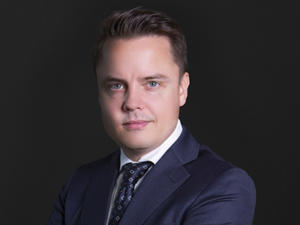Battle between Abbott and SiBio intensifies following two UPC rulings
After two opposing PI rulings by the local division The Hague, the dispute between Abbott Diabetes Care and SiBio Technology over glucose-monitoring technology is coming to a head. Next week, Düsseldorf local division will hear Abbott's third PI application against its Chinese competitor and distribution partner Umedwings.
28 June 2024 by Mathieu Klos
The local division The Hague has issued two opposing rulings in the dispute over continuous glucose-monitoring devices (CGM) between market leader Abbott and the Chinese newcomer SiBio and the latter’s distribution partner Umedwings. In one case, the judges led by presiding judge Edger Brinkman rejected a PI application. In a second case, they granted Abbott the PI, with the result that SiBio may no longer distribute its CGM devices in Germany, France, the Netherlands and Ireland.
Three-pronged attack
Abbott filed three PI proceedings against SiBio and Umedwings in April, two with the local division The Hague and one at the local division Düsseldorf. Abbott is also taking action against various SiBio companies, Umedwings and other European distributors across Europe. This includes the UK High Court, Düsseldorf Regional Court, the Civil Court in Rome and the Commercial Court in Barcelona.
While Abbott is the market leader in CGM technology with large market shares in Europe, SiBio is still a relatively young player in the CGM market, with the Chinese company only launching its SiBio KS1 CKM product last year.
According to JUVE Patent information, it has not yet received approval in Europe, meaning medical professionals are unable to prescribe it. As a result, SiBio was only selling the products in Europe via its website and online platforms. This makes it much more challenging to manage distribution than if the devices are primarily prescribed by doctors.
Sales stop for SiBio
Abbott had applied for a PI due to infringement of EP 2 713 879 B1. The court has now granted this (case ID: UPC_CFI_130/2024), resulting in a sales stop for SiBio in Germany, France, the Netherlands and Ireland. SiBio and Umedwings had filed protective letters in advance of the hearing on 22 May in The Hague. They had also given a cease-and-desist declaration.
SiBio told the court that it had done everything in its power to stop the further distribution of its products. However, Abbott was able to convince the court that it could continue to purchase SiBio products in Germany and Ireland even after the cease-and-desist declaration, which Abbott had not accepted.
The injunction is unlikely to be relevant for the distribution of SiBio products following SiBio’s cease-and-desist declaration. Nevertheless, severe penalties of up to €100,000 per day could be imposed if further products were to appear in the four markets. SiBio will appeal against this.
The Irish issue
The fact that the three judges of the local division The Hague, Edger Brinkman, Margot Kokke and Petri Rinkinen, have also issued the PI for Ireland is likely to cause a stir. Although Ireland has signed the UPC agreement, it has not yet ratified the treaty. The Irish government recently postponed a corresponding referendum.
The judges ruled nonetheless, “Abbott apparently wishes the order to also cover Ireland, which is a signatory state to the UPCA, and therefore a Contracting Member State, even though Ireland has not yet ratified the Agreement. In this case (unlike the parallel case 14945/2024), SiBio c.s. did not challenge the competence of this court with respect to Ireland. According to Art. 31 UPCA (which provides that the international competence of the court is established in accordance with Brussels Regulation 1215/2012 as amended by EU Regulation 542/2014, “BR”), and Art. 26, 35 and 71, 71a and 71b BR, this court therefore is competent to hear the case.”
If the Court of Appeal confirms this view, the UPC would then extend its jurisdiction to those six EU states that, like Ireland, have signed the UPC Agreement but have not yet ratified it. This would not only increase the attractiveness of the UPC but also of the local division The Hague.
The case should also provide clarity as to how defendant companies will need to make cease-and-desist declarations before the UPC in future. There are different legal traditions among the member states.
New added subject matter
In the other case, the judges — again led by Edger Brinkman — rejected Abbott’s PI application due to an impermissible extension of the patent. This led them to the conclusion that claim 1 of EP 3 831 283 B1 will likely be found invalid (case IDs: ACT_14944/2024). Margot Kokke and Petri Rinkinen also played a role in this decision. French patent attorney Renaud Fulconis from Bandpay & Greuter was the technically qualified judge.
In this respect, SiBio and Umedwings were successful in their attack on the patent. In its 10x Genomics vs. NanoString decision in March, the UPC Court of Appeal set very high hurdles for the granting of pan-European PIs, which came into play here.
SiBio has since confirmed to JUVE Patent that it has filed a central revocation action against EP 283 with the central division in Paris (case ID: ACT_27463/2024 UPC_CFI_231/2024). The company is thus putting increasing pressure on the market leader. However, it is also considered certain that Abbott will appeal against the ruling.
In addition, Abbott still has a counterclaim for infringement. Abbott has so far waived separate infringement claims concerning the patents at the UPC.
Showdown in Düsseldorf
The two opponents will meet again in Germany next week. Düsseldorf local division will then hear Abbott’s PI application against SiBio and Umedwings for infringement of EP 2 393 417 B1 (case ID: ACT_15000/2024). The panel will comprise presiding judge Ronny Thomas as well as Bérénice Thom, Mélanie Bessaud and Renaud Fulconis. According to JUVE Patent information, Abbott has applied for a PI in Germany, France and the Netherlands.
Although SiBio and Umedwings had also given a cease-and-desist declaration in this case the conditions for next Wednesday’s hearing are now slightly different to those in The Hague. However, the lawyers for SiBio and Umedwings will likely now try to convince the Düsseldorf judges that the verdict from The Hague is wrong. It would also be unsurprising if they tried to convince the local division on short notice that EP 417 is not valid in order to avoid another PI.
Taylor Wessing vs Simmons & Simmons
The dispute essentially pits two large teams against each other, both from two international law firms that are currently among those with the most UPC cases on the plaintiff side. Taylor Wessing has been the go-to law firm for Abbott for years.
- Eelco Bergsma
- Wim Maas
An international team of German and Dutch lawyers is also advising Abbott in a second dispute concerning CGM technology against Dexcom before the UPC and national patent courts.
Eelco Bergsma and Wim Maas had the lead for Abbott in both Dutch proceedings. The London partners Matthew Royle, Nigel Stoate and Chris Thornham provided support. Abbott obtained technical advice from the two AOMB patent attorneys Peter Haartsen and Raimond Haan. Düsseldorf partner Roland Küppers is in charge of the proceedings in Düsseldorf.
- Thomas Gniadek
- Oscar Lamme
SiBio and Umedwings are relying on the support of Simmons & Simmons in all three proceedings with Munich partner Thomas Gniadek in the lead. Amsterdam partner Oscar Lamme provided support, together with the two patent attorneys Fritz Lahrtz (partner, Munich) and Diptanil Debbarma (associate, Amsterdam). The size of the teams on both sides goes well beyond those representatives named.




